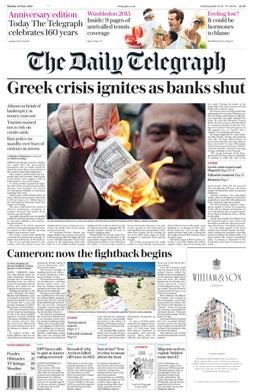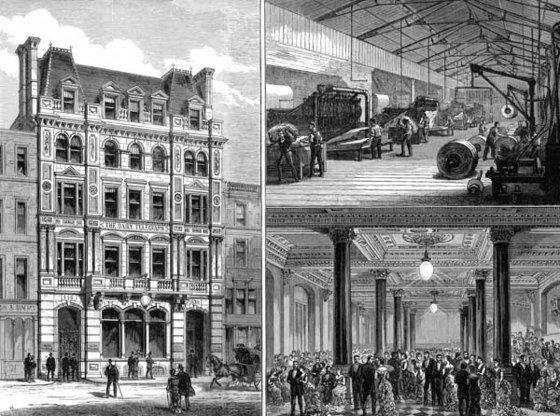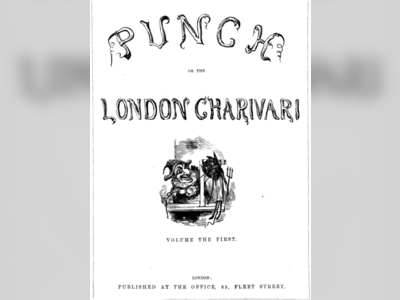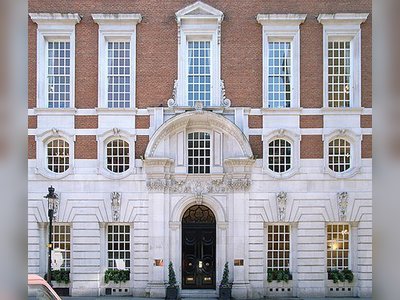British Heritage
Remember, Cherish, Learn.
beta
The Daily Telegraph
Contribution of The Daily Telegraph to British Heritage.
The Daily Telegraph, a national British daily broadsheet newspaper, has a rich history and a significant contribution to British heritage. Founded in 1855 as The Daily Telegraph & Courier by Colonel Arthur B. Sleigh, the newspaper was initially intended to air personal grievances but soon evolved into a prominent publication that played a crucial role in shaping public opinion and disseminating important news and information.
Throughout its existence, The Telegraph has maintained a reputation for high-quality journalism and independence. It has been regarded as a newspaper of record, often competing with The Times for influence and readership. When the Conservative Party is in power, The Telegraph is considered the preferred newspaper, reflecting its alignment with conservative principles and policies.
The newspaper's legacy is built on its motto, "Was, is, and will be," which emphasizes its commitment to enduring relevance and journalistic integrity. This motto has been a constant feature in the editorial pages since 1858, symbolizing the newspaper's continuity and dedication to truth-seeking and factual reporting.
Over the years, The Telegraph has been at the forefront of numerous news scoops and groundbreaking investigative journalism. Some notable instances include Clare Hollingworth's reporting on the outbreak of World War II, the 2009 MP expenses scandal that led to high-profile political resignations, and the 2016 undercover investigation on England football manager Sam Allardyce. These stories not only garnered widespread acclaim but also demonstrated the newspaper's influence in uncovering important truths and holding those in power accountable.
Moreover, The Daily Telegraph has played a crucial role during times of crisis and conflict. During the Second World War, the newspaper covertly assisted in recruiting code-breakers for Bletchley Park, contributing significantly to the war effort. Its crossword puzzle became a recruitment test for aspiring code-breakers, showcasing the newspaper's willingness to support the national interest.
The publication's contributions to British heritage extend beyond its reporting. In 1937, The Telegraph absorbed The Morning Post, a conservative newspaper targeted at the retired officer class. This consolidation further solidified The Telegraph's position as a prominent voice for conservative views and values in the British media landscape.
Additionally, The Telegraph has been instrumental in shaping public opinion on political matters. It has endorsed the Conservative Party at every UK general election since 1945, earning it the moniker "Torygraph." Despite changes in political fortunes, the newspaper remained steadfast in its support of conservative ideology, earning it a reputation as a trusted ally for the party.
Through its long history and influential journalism, The Daily Telegraph has left an indelible mark on British heritage. Its commitment to accurate reporting, investigative journalism, and conservative principles has contributed to its status as "one of the world's great titles," earning it a place of prominence in the annals of British media history.
Throughout its existence, The Telegraph has maintained a reputation for high-quality journalism and independence. It has been regarded as a newspaper of record, often competing with The Times for influence and readership. When the Conservative Party is in power, The Telegraph is considered the preferred newspaper, reflecting its alignment with conservative principles and policies.
The newspaper's legacy is built on its motto, "Was, is, and will be," which emphasizes its commitment to enduring relevance and journalistic integrity. This motto has been a constant feature in the editorial pages since 1858, symbolizing the newspaper's continuity and dedication to truth-seeking and factual reporting.
Over the years, The Telegraph has been at the forefront of numerous news scoops and groundbreaking investigative journalism. Some notable instances include Clare Hollingworth's reporting on the outbreak of World War II, the 2009 MP expenses scandal that led to high-profile political resignations, and the 2016 undercover investigation on England football manager Sam Allardyce. These stories not only garnered widespread acclaim but also demonstrated the newspaper's influence in uncovering important truths and holding those in power accountable.
Moreover, The Daily Telegraph has played a crucial role during times of crisis and conflict. During the Second World War, the newspaper covertly assisted in recruiting code-breakers for Bletchley Park, contributing significantly to the war effort. Its crossword puzzle became a recruitment test for aspiring code-breakers, showcasing the newspaper's willingness to support the national interest.
The publication's contributions to British heritage extend beyond its reporting. In 1937, The Telegraph absorbed The Morning Post, a conservative newspaper targeted at the retired officer class. This consolidation further solidified The Telegraph's position as a prominent voice for conservative views and values in the British media landscape.
Additionally, The Telegraph has been instrumental in shaping public opinion on political matters. It has endorsed the Conservative Party at every UK general election since 1945, earning it the moniker "Torygraph." Despite changes in political fortunes, the newspaper remained steadfast in its support of conservative ideology, earning it a reputation as a trusted ally for the party.
Through its long history and influential journalism, The Daily Telegraph has left an indelible mark on British heritage. Its commitment to accurate reporting, investigative journalism, and conservative principles has contributed to its status as "one of the world's great titles," earning it a place of prominence in the annals of British media history.
- The Daily Telegraphen.wikipedia.org







